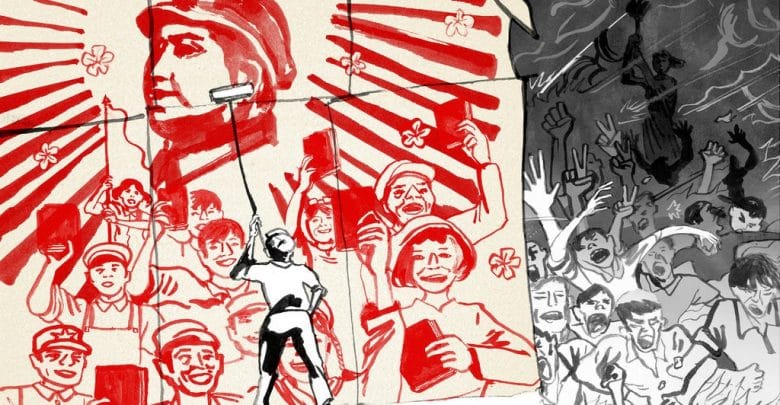
China cannot erase the truth of Tiananmen
The Communist government wants to control the future by suppressing the past.
Even after 30 years, erasing the history of the massacre in Tiananmen Square remains an obsession of the Chinese Communist Party. To a degree, it has succeeded: The Chinese raised in the extraordinary boom times since that day often know little about what happened on June 4, 1989, or accept the official line that curbing the “counterrevolutionaries” was needed to facilitate the economic miracle.
But those who were there, and many of those who know what happened when the Chinese Army crushed the two-month-old democracy protests, cannot forget — and cannot accept that anyone else should. One of them is Jiang Lin, a former military journalist, who was in the square that night and has been consumed ever since by what she witnessed, and who shared her agonizing memories in a series of interviews with The Times’s Chris Buckley.
Ms. Jiang is 66 now, and she left China last week. Had she not, it is very likely that she would have shared the fate of the many other Chinese who have been repressed because their conscience would not let them stay silent. “The pain has eaten at me for 30 years,” she said. “Everyone who took part must speak up about what they know happened. That’s our duty to the dead, the survivors and the children of the future.”
Hers is an anguish and a mission shared by many people around the world scarred by great atrocities, whether survivors of the Holocaust; or relatives of the “disappeared” in Argentina; or those who carry the memories of the Soviet gulag, the Armenian genocide in Ottoman Turkey, the Khmer Rouge killing fields of Cambodia, the massacres in Rwanda or any of the other mass murders of modern times.
The degree to which a nation is prepared to acknowledge its historical sins reflects the degree to which it has embraced freedom. A democratic West Germany made serious efforts after World War II to confront its Nazi past. With the restoration of democracy, Argentina began prosecuting perpetrators of its “dirty war” against dissidents.
But authoritarian regimes are firm believers in the George Orwell dictum “Who controls the past controls the future: who controls the present controls the past.” The Soviet Union was forever rewriting or blotting out its history to maintain its power over its people, and China has similarly sought to manipulate national narratives and memories, whether through censorship or by force.
Why the ruling Communist Party feels a need to suppress all knowledge of Tiananmen Square is not hard to understand. China’s Communists saw an existential threat in the mass demonstrations around the country demanding fundamental democratic reforms, and the ferocity with which Tiananmen was cleared left hundreds, perhaps several thousands, dead; the toll has never been given. This is not a history the stewards of a “People’s Republic” want known.
Allowing an open discussion of what happened would raise serious questions about the judgment of a purportedly infallible party; about whether China’s economic boom might actually have been delayed by the massacre; about whether China would be even more prosperous today, like Hong Kong or Taiwan, had it adopted democratic reforms sought by the protesters.
Ms. Jiang’s testimony is especially important because she was not a demonstrator; she was a card-carrying member of the military establishment, daughter of a general and herself a lieutenant in the army. In her capacity as a military journalist she tried to spread word of a letter from senior generals opposing martial law. And then she got on her bicycle and went to Tiananmen. There, she saw what happened when the warnings were not heeded, and suffered a serious head wound in the melee.